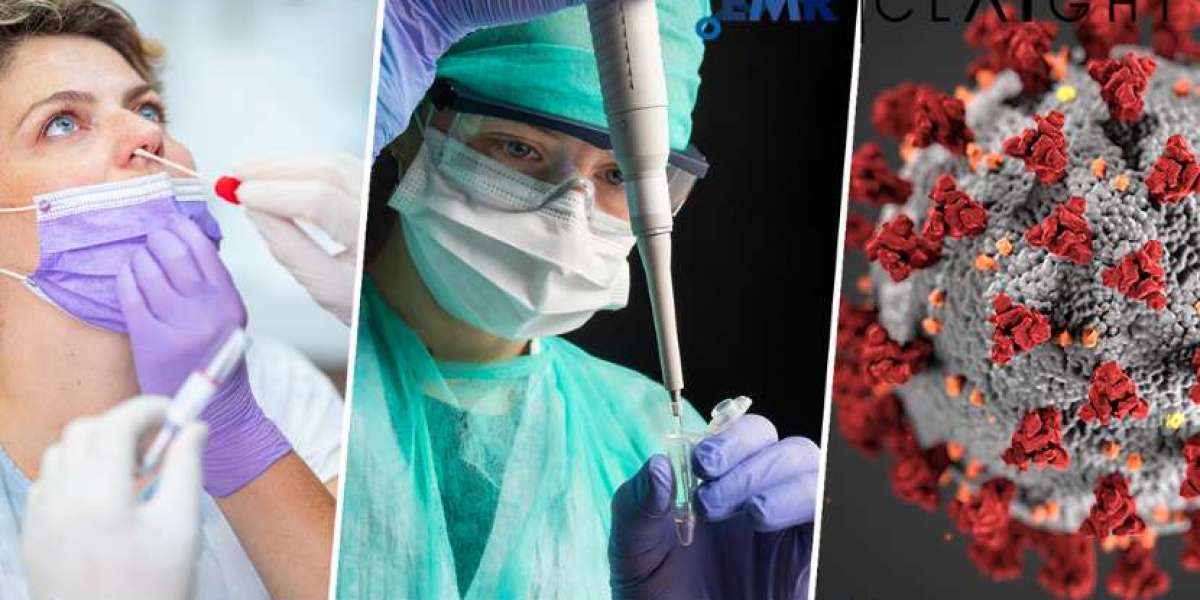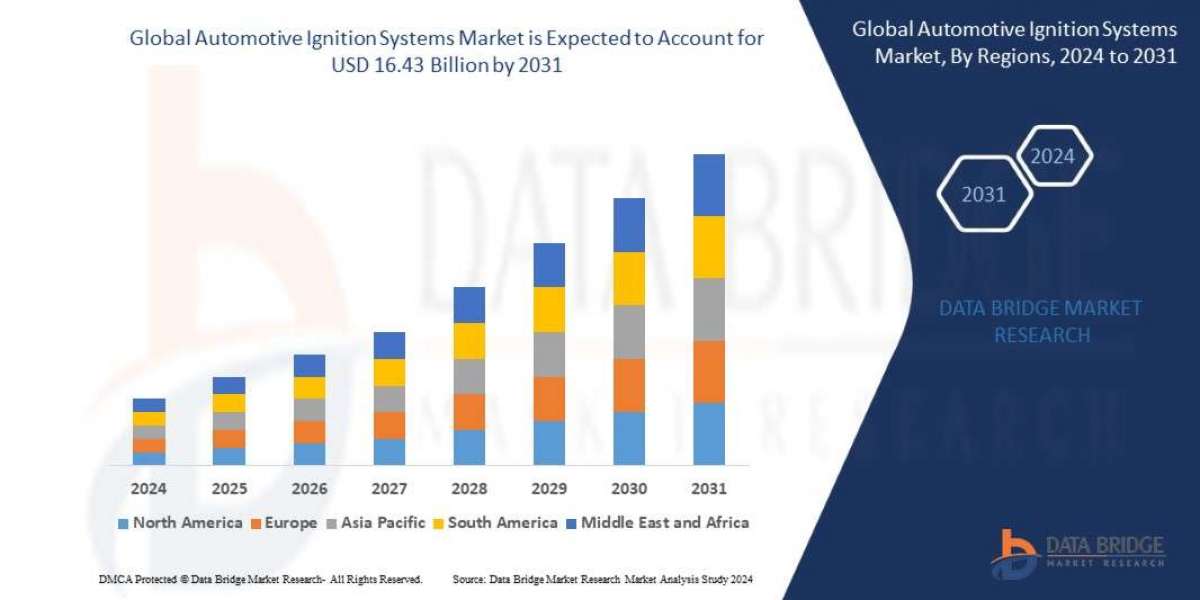The COVID-19 pandemic has dramatically transformed the healthcare landscape, with the diagnostics market at the forefront of the response. North America, particularly the United States, has been a critical region in the global effort to control the virus’s spread. With nearly 390 million tests conducted by March 2021, the demand for efficient and accurate diagnostics has surged, driving significant innovation and investment in the industry. This blog delves deeper into the key players, the evolving market trends, and the future outlook for COVID-19 diagnostics in North America.
Market Overview
The North America COVID-19 diagnostics market has experienced unprecedented growth, driven by the urgent need to detect and manage COVID-19 infections. The market encompasses various testing methods, including molecular (PCR), antigen, and antibody tests. As the virus continues to mutate, the demand for reliable diagnostics that can quickly identify infections and differentiate between variants has only increased.
Factors Driving Market Growth:
- Rising Infection Rates: As new variants of COVID-19 emerge, infection rates fluctuate, necessitating continuous testing to control outbreaks.
- Government Initiatives: Governments across North America have implemented policies and provided funding to enhance testing capabilities, including at-home testing kits and mass testing centers.
- Technological Advancements: Innovations in diagnostic technology, such as CRISPR-based tests and AI-driven diagnostic tools, have improved test accuracy and reduced turnaround times.
Challenges Facing the Market:
- Supply Chain Disruptions: The early stages of the pandemic saw significant disruptions in the supply chain, affecting the availability of testing kits and reagents. While this has improved, challenges remain, particularly with the emergence of new variants.
- Regulatory Hurdles: The rapid development and deployment of COVID-19 diagnostics have led to regulatory challenges, particularly in ensuring the accuracy and reliability of tests amid evolving virus strains.
Key Industry Players
- Abbott Laboratories
- Overview: Abbott Laboratories is a major player in the healthcare industry, known for its rapid diagnostic solutions. The company has been instrumental in expanding testing capabilities across North America.
- Recent Developments: Abbott’s BinaxNOW COVID-19 Ag Card has become one of the most utilized rapid antigen tests in the U.S. In response to increased demand, Abbott has significantly expanded its production capacity. Additionally, the company is investing in next-generation diagnostics that can detect a broader range of COVID-19 variants, ensuring continued relevance as the virus evolves.
- Becton, Dickinson and Company (BD)
- Overview: BD is a global leader in medical technology, with a strong focus on diagnostics. The company has leveraged its expertise to develop high-quality COVID-19 testing solutions.
- Recent Developments: BD’s Veritor System, known for its speed and reliability, has been a critical tool in the rapid testing landscape. The company recently enhanced the system’s ability to detect emerging variants, making it a vital component in the ongoing fight against COVID-19.
- LuminUltra Technologies Ltd.
- Overview: LuminUltra is a leader in molecular diagnostics, particularly known for its environmental and industrial testing solutions. The company has adapted its technology to address the COVID-19 crisis.
- Recent Developments: LuminUltra has pioneered wastewater testing as a method of early detection of COVID-19 outbreaks. This innovative approach allows for the monitoring of entire communities, providing a proactive measure to control the spread of the virus before clinical cases arise.
- Co-Diagnostics, Inc.
- Overview: Co-Diagnostics specializes in molecular diagnostics, with a focus on PCR technology. The company has rapidly developed COVID-19 testing solutions that have been widely adopted across North America.
- Recent Developments: The Logix Smart™ COVID-19 Test, Co-Diagnostics’ flagship product, is known for its high sensitivity and specificity. The company continues to refine its technology to improve the detection of COVID-19 variants, ensuring that their tests remain effective as the virus mutates.
- CTK Biotech, Inc.
- Overview: CTK Biotech is a global player in the rapid diagnostics market, offering a range of tests for infectious diseases, including COVID-19.
- Recent Developments: The OnSite COVID-19 Ag Rapid Test from CTK Biotech has gained traction in both clinical and home settings. The company has recently entered into new distribution agreements that have expanded the availability of their products in underserved regions, increasing their market share.
- Thermo Fisher Scientific
- Overview: Thermo Fisher Scientific is a global leader in scientific services, offering comprehensive COVID-19 testing solutions that cover molecular, antigen, and antibody tests.
- Recent Developments: Thermo Fisher’s TaqPath COVID-19 Combo Kit is one of the most advanced PCR tests available, capable of detecting multiple COVID-19 variants in a single test. The company is also at the forefront of research into new diagnostic technologies that could further enhance the speed and accuracy of COVID-19 testing.
Emerging Trends in COVID-19 Diagnostics
- Rise of At-Home Testing Kits
- At-home testing kits have become a game-changer in the COVID-19 diagnostics market. These kits allow individuals to test themselves from the comfort of their homes, providing results in minutes. Companies are focusing on improving the accuracy, ease of use, and affordability of these kits to meet the growing consumer demand.
- Integration of AI and Big Data
- The use of artificial intelligence (AI) and big data analytics is revolutionizing the diagnostics industry. AI-driven tools are being used to enhance the accuracy of tests by analyzing large datasets to identify patterns and predict outcomes. These technologies also enable real-time tracking of infection trends, helping healthcare providers respond more effectively to outbreaks.
- Focus on Variant Detection
- As the virus continues to evolve, the ability to detect new variants is critical. The diagnostics market is increasingly focusing on developing tests that can differentiate between multiple COVID-19 strains. This capability is essential for effective surveillance and management of the pandemic, especially as new variants emerge with potentially different transmission rates and vaccine resistance.
- Expansion of Testing Infrastructure
- To meet the ongoing demand for COVID-19 testing, there has been a significant expansion of testing infrastructure across North America. This includes the establishment of mobile testing units, drive-through testing sites, and pop-up laboratories in high-traffic areas. These initiatives aim to make testing more accessible, particularly in underserved communities.
- Collaborations and Partnerships
- The COVID-19 diagnostics market has seen a surge in collaborations between public and private sectors. These partnerships have been crucial in scaling up testing capabilities, ensuring that resources are allocated efficiently and that testing is widely available. Companies are also collaborating with research institutions to develop next-generation diagnostics that can keep pace with the evolving virus.
Future Outlook
The future of the North America COVID-19 diagnostics market looks promising, with continued growth expected as the pandemic persists. Innovations in diagnostic technology, coupled with the expansion of testing infrastructure, will likely drive market growth. However, the market will also face challenges, including the need to adapt to new variants and ensure that testing remains accessible and affordable.
As we move forward, it will be essential for companies to stay ahead of the curve by investing in research and development, forming strategic partnerships, and responding to regulatory changes. The market is poised for continued evolution, with new players likely to enter the field as the demand for effective COVID-19 diagnostics remains high.








